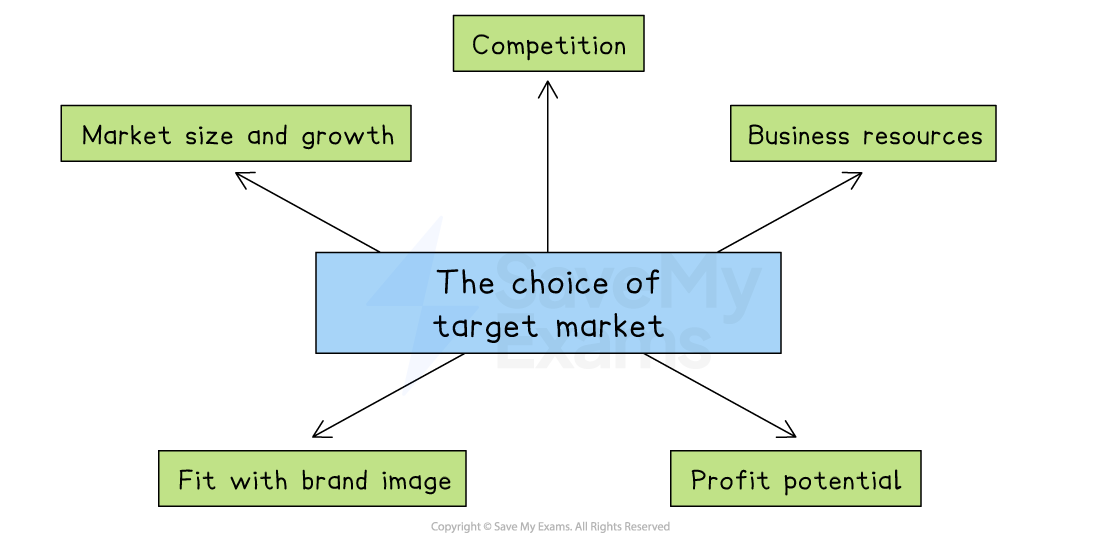Target Markets (SQA National 5 Business Management): Revision Note
Exam code: X810 75
Targeting different markets
Targeting is when a business decides which specific group of customers (market segment) it will focus its products and marketing on
Once a market has been segmented, the business chooses the most suitable segment to target, which is those most likely to buy its product
Approaches to targeting
Approach | Description | Example |
|---|---|---|
Mass marketing |
|
|
Niche marketing |
|
|
Differentiated marketing |
|
|
Concentrated (focused) marketing |
|
|
Factors affecting the choice of target market

Size and growth of the market
Is it large or expanding enough to make sufficient profit?
A larger or growing market usually means more potential customers and higher sales
A small or shrinking market might not justify the investment
Competition
Is there already a dominant brand?
If a competitor already controls most of the market, it may be difficult for a new business to attract customers unless it offers something clearly different
Resources
Does the business have enough money and staff to reach the chosen segment?
Marketing campaigns, product development and customer service all require investment, so smaller businesses must be realistic about what they can manage
Fit with the brand image
Does the segment match the business’s identity and goals?
Targeting a market that doesn’t reflect the brand’s values can confuse customers and weaken reputation
For example, a budget brand suddenly selling luxury items
Profit potential
Will targeting this market bring good returns?
A business must consider whether customers in the chosen segment will pay enough for the product to cover costs and generate a worthwhile profit
An evaluation of targeting
Benefits of effective targeting | Risks of poor targeting |
|---|---|
|
|
Examiner Tips and Tricks
Avoid thinking a business can sell to everyone – that’s a classic mistake!
A target market is the specific group a business focuses on after segmentation – remember: segment to find them, target to reach them
Always give an example, like “young adults aged 18–25”

Unlock more, it's free!
Was this revision note helpful?
